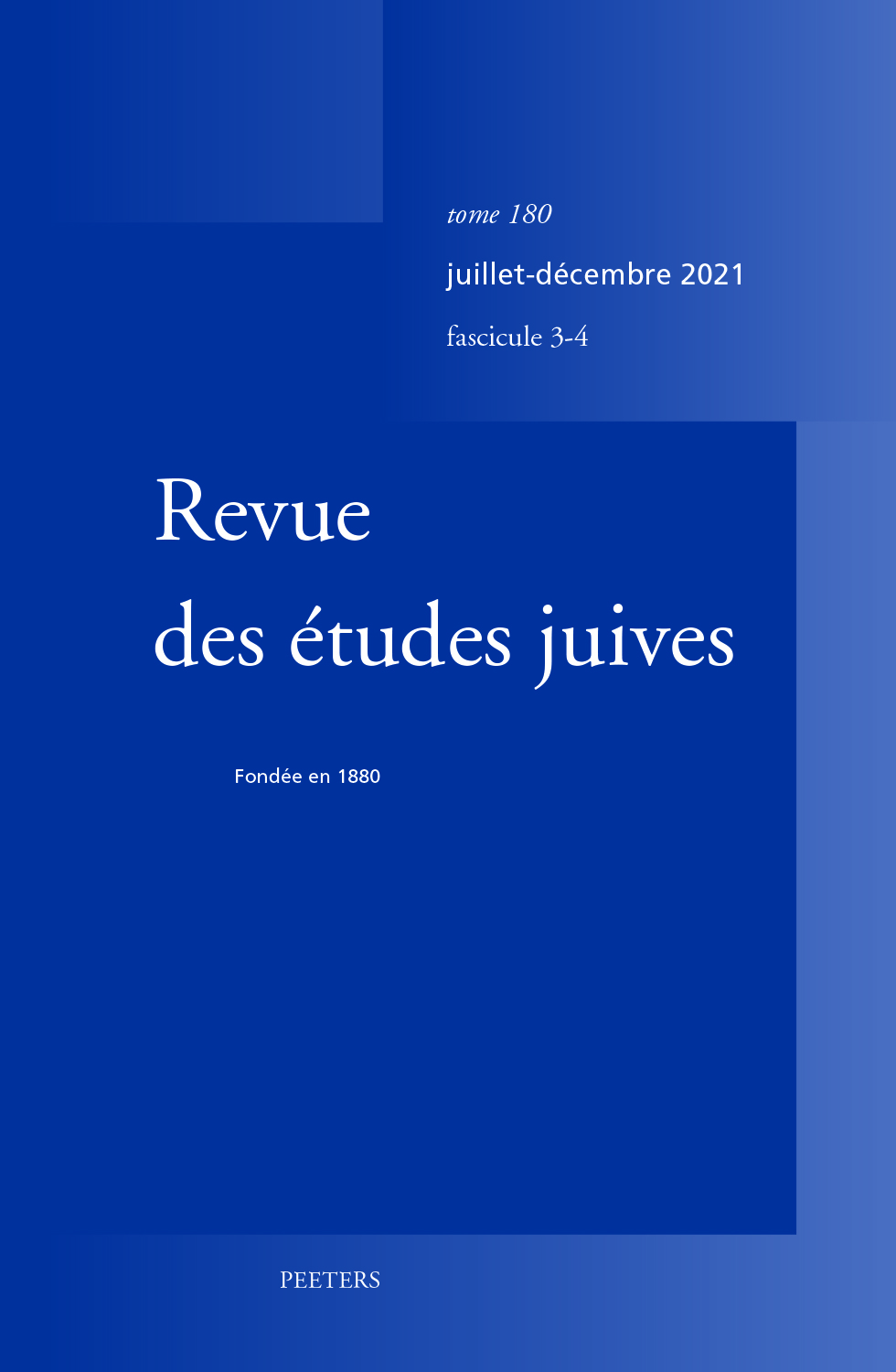 previous article in this issue previous article in this issue | next article in this issue  |

Preview first page |
Document Details : Title: On the Term Kol in Abraham Ibn Ezra Subtitle: A Reappraisal Author(s): KREISEL, H. Journal: Revue des Études Juives Volume: 153 Issue: 1-2 Date: janvier-juin 1994 Pages: 29-66 DOI: 10.2143/REJ.153.1.2012633 Abstract : In a recent article, Elliot Wolfson argues that the term kol (all) in the writings of Abraham Ibn Ezra has two meanings: the totality of beings, and the hypostasis of the Intellect. This intellect comprises within itself all things, and serves as the Demiurge. The latter meaning comes to replace, rather than complement, the generally accepted interpretation of this term as an epithet for God. Wolfson brings a vast array of arguments —historical, textual, and conceptual —in support of his interpretation. He traces the use of the term kol as an epithet for the Intellect beneath the One in the writings of Plotinus and Proclus (which were translated into Arabic and left a sharp impress upon Islamic philosophical thought). He brings a number of ontological schemes prior to Ibn Ezra that posit an Intellect-Demiurge beneath God. He carefully analyzes passages in Ibn Ezra's writings in which the term kol or the term yoẓer breishit (creator of the beginning) appears, as well as passages containing a number of other relevant terms. He attempts to show that these epithets do not refer to God but to the Active (or Universal) Intellect, also identified by Ibn Ezra with the angel Metatron. Wolfson points out that the term kol bears some similarity to the term al-'aql al-kullī (Universal Intellect) that appears in the writings of a number of Ibn Ezra's predecessors, including Avicenna who also uses the term 'aql al-kull (Intellect of the world). |
|


